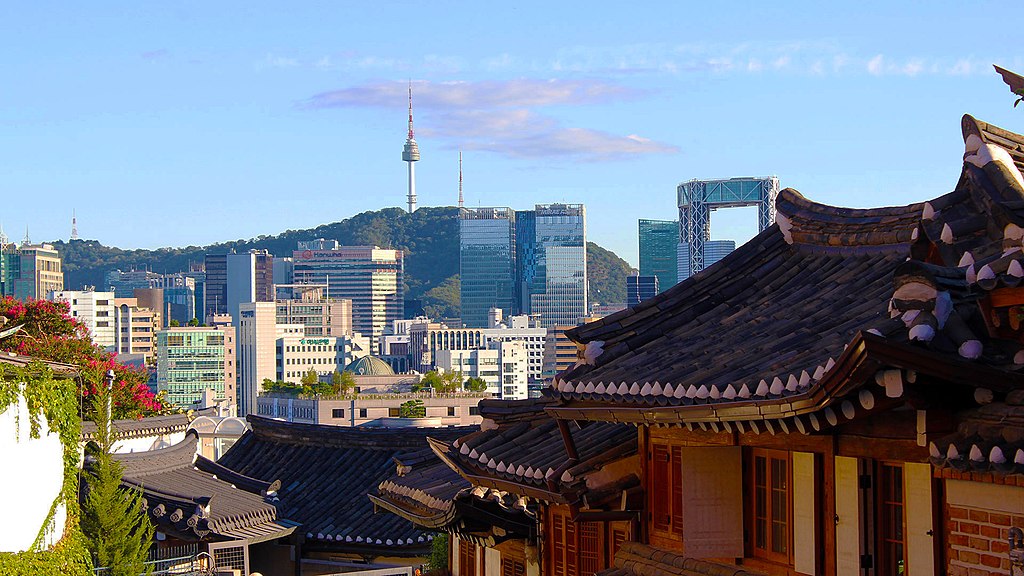
Capital of South Korea
Seoul is the capital city of South Korea.
It’s a huge metropolis where modern skyscrapers and meet Buddhist temples. Half of the country’s population lives in the city and in the metro area, making it the 5th largest metro area populated in the world.
Noryangjin Fish Market
It’s home to more than a hundred fish stores, open every day.
Buckchon Hanok Village
You can find there more than nine hundred traditional Korean houses, the so-called hanok. These are made of rock, wood, soil, and paper, with a slightly curved rooftop, and inside you can still find the classic floor beds and the short living room tables with pillows instead of chairs.
Hongdae
It is the district where locals come to party. Chances are that when you go you will see a festival of some kind happening.
N Seoul Tower
236 m high, is considered the symbol of Seoul, becoming in 2012 the first tourist attraction of the city.
It is the first general radio-wave tower providing television and radio broadcasting in the city. To avoid the crowd is recommended to go by night.
Gwangjang Market
It is one of the oldest and traditional market in South Korea where you can find the best traditional food including Soondae and Mayak Gimbap.
Korean War Museum
The building is impressive, the korean war lasted from 1950 to 1953. During the conflict the city was transformed into ruins. The war never officially ended and they signed an armistice but no peace treat was sign. The museum is an impressive testament to the conflict and features numerous exhibits.
Jogyesa Buddhist Temple
It’s the center of spirituality in Korea, and it’s also a symbol of resistance by the Koreans from the Japanese effort to suppress Korean’s Buddhism. It’s a peaceful place to escape from the chaos of the city.
Bukhansan National Park
The best place for hiking lovers. You can reach the top after around 3 hours, for a view of the city and another escape from the urban chaos.


